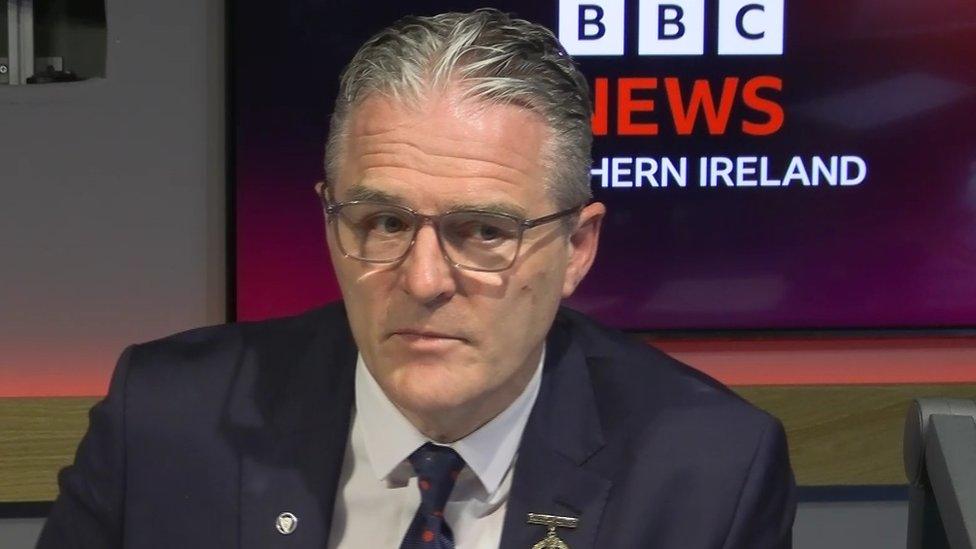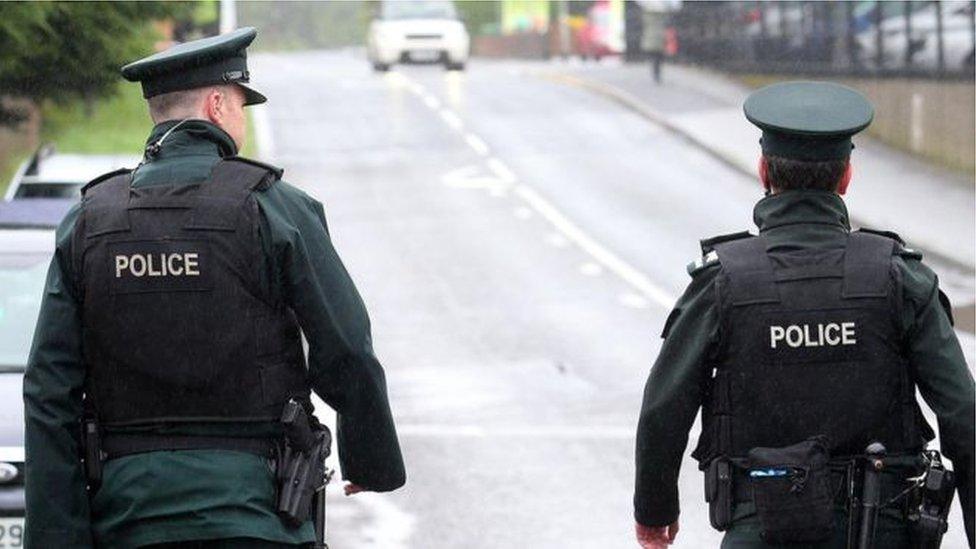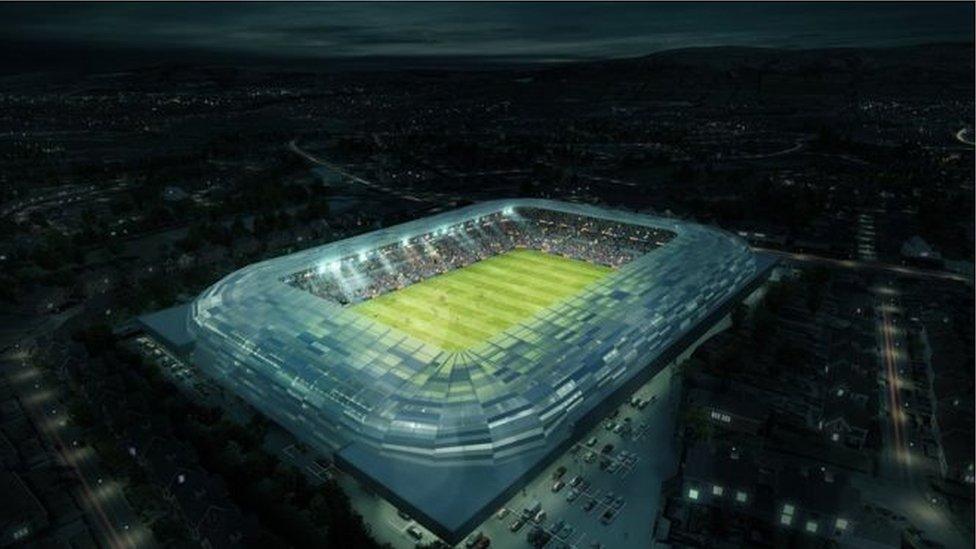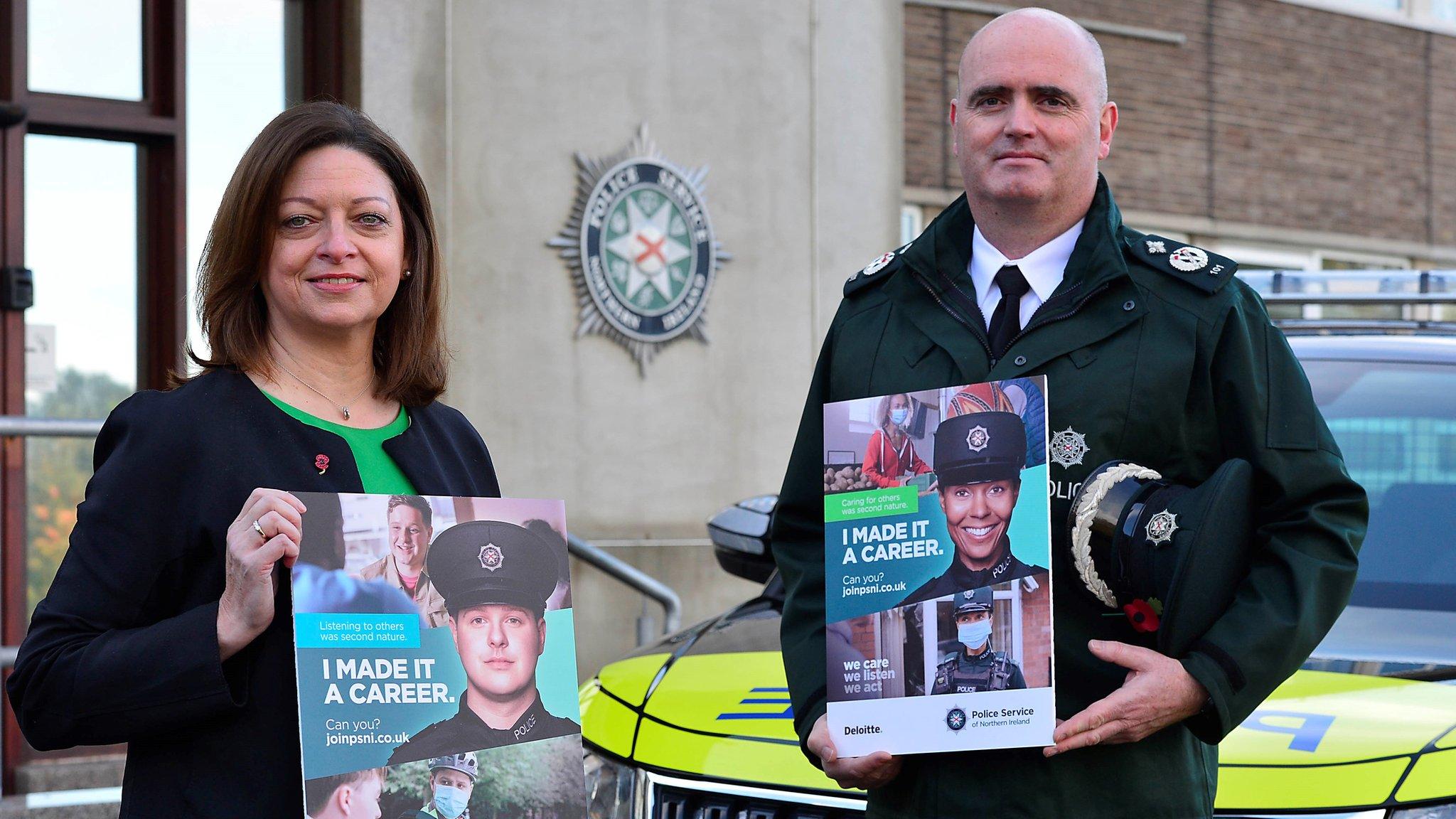GAA 'will not meddle' over PSNI recruitment, says president
- Published

Jarlath Burns said the GAA will increase its support for Casement Park
The GAA will not meddle in the lives of its members when it comes to being recruited into the Police Service of Northern Ireland (PSNI), its president has said.
Jarlath Burns also said the Orange Order should be respected.
He was speaking during an interview with the BBC's Talkback programme.
Mr Burns said he was surprised at Tánaiste Micheál Martin's comments that the GAA should do more to boost the number of Catholics joining the PSNI.
Mr Martin made the remarks in an interview with The Irish News in February, external.
"It takes a superficial view of what the GAA does," he said.
"Our core purpose is to promote Gaelic. We cannot be involved with any organisation with regards to their HR requirements.
"We are not going to start meddling in the lives of our members.
"We are doing plenty and will continue to do what we're doing."
Latest PSNI figures, external indicate that about 33% of officers and 19% of PSNI staff are from a Catholic background.
Mr Burns added that the GAA has included a full-page advertisement for PSNI recruitment in its All-Ireland final programmes for the last five years, while public meetings have been held in GAA clubs recognising the importance of the PSNI linking with the community.
Striking fear
During a wide-ranging interview on Talkback, Mr Burns added that at times the GAA has been used to send a message to members.
He described the murder of GAA official Sean Brown as an "attempt to strike fear into nationalist community through GAA".
Mr Brown, 61, was abducted in Bellaghy, County Londonderry, as he locked the gates of the local GAA club in 1997. He was shot dead near Randalstown in County Antrim.
"The families are looking for truth," Mr Burns added.
The GAA president, who has previously met members of the Orange Order, said there were similarities between both organisations.

Mr Burns said he was "surprised" at Tánaiste Micheál Martin's recent comments
"When you hold a hand of friendship out someone will put it back," he said.
"The Orange Order appeals to the primeval part of brain that GAA also appeals to and it is love of place.
"To nationalists saying its sectarian, I would say we have to respect all the culture that exists in Northern Ireland.
"For some families the Orange Order goes right through their families. The GAA won't get involved in the rhetoric that is condemning other organisations."
He added that the modern GAA is "very inclusive".
Casement Park cost
Mr Burns also addressed the ongoing issue of funding for the redevelopment of Casement Park.
The derelict stadium is due to be used as part of the UK and Ireland's Euro 2028 bid and floodlights were removed from the ground as part of preparation plans for the proposed new stadium.
However the cost of the redevelopment has escalated to beyond its initial cost of £77.5m and it is not known who will fund the shortfall.

An artist's impression of the proposed stadium which would have a capacity of 34,500
Mr Burns called for the remaining funding gap to be filled by the UK government, adding that it has "a moral obligation" to support the GAA "given what has happened in the past".
He said that reparations for Bloody Sunday, when British forces opened fire on a crowd attending a Gaelic football match in Croke Park killing 14 people in 1920, have never happened.
"Money would never change that," he added.
"But the British government could send a signal to the GAA to say: 'We aren't against you, we understand the role you play in communities and we are going to do this for you.'
"The past is a very sad story, our interactions with the British government. But the Northern Ireland soccer team playing in west Belfast in a GAA ground is a story I want to launch."
Speaking to BBC News NI after the Talkback interview, Mr Burns said he expects "welcome news" in the next week over the stadium's redevelopment.
It has been suggested by Democratic Unionist Party (DUP) MP Jim Shannon that the overall cost for Casement could be £220m, while Westminster sources have indicated that the cost could now be as much as £300m.
The current allocation of public funding approved by the Executive in 2011 is £62.5m and, in February the Irish Government said it was providing €50m (£42.8m).
The GAA has committed £15m to the project.
- Published2 November 2021

- Published20 May 2023

- Published11 April 2024
